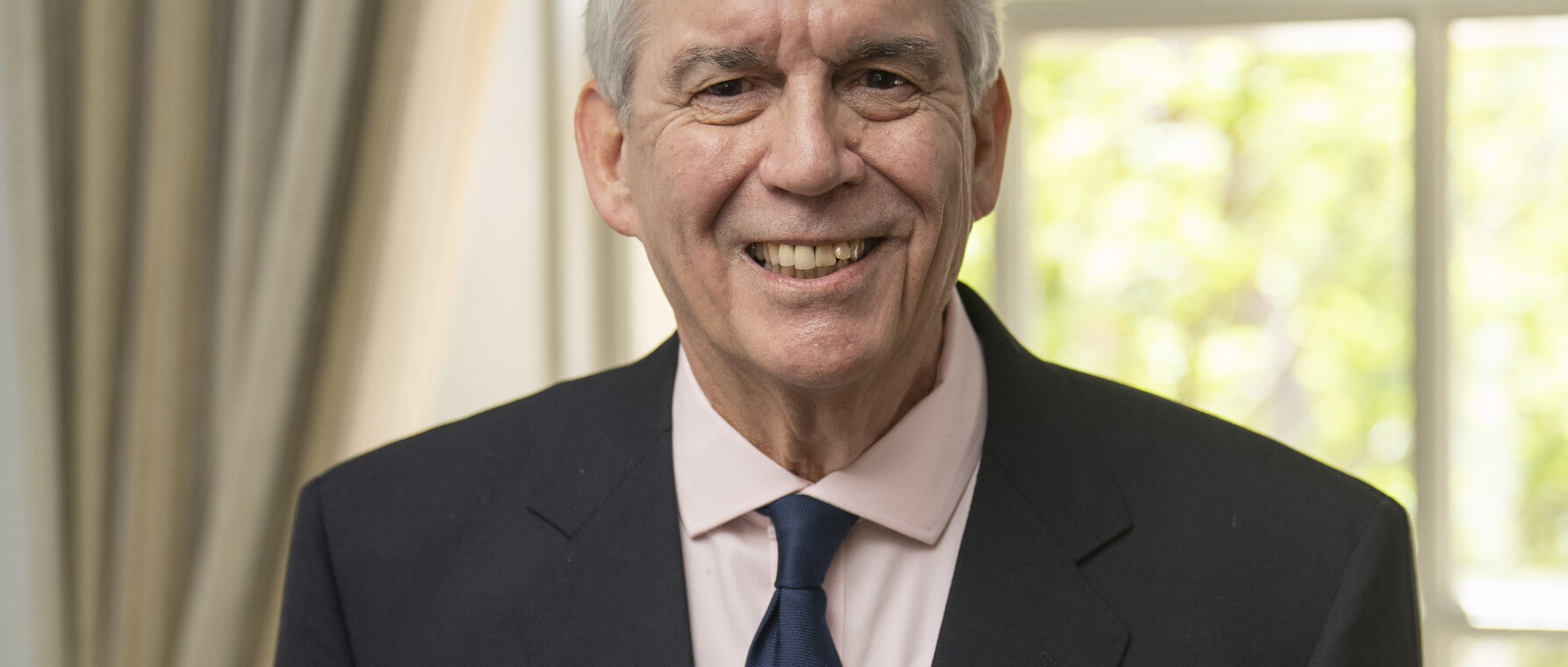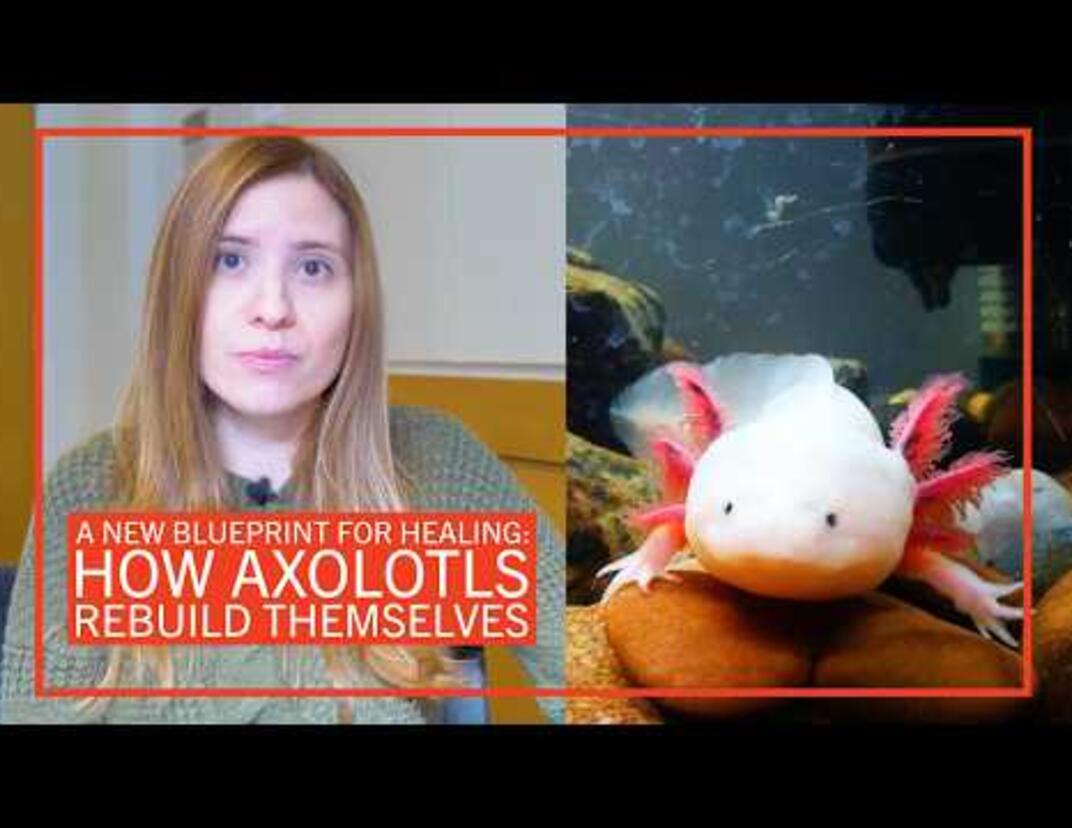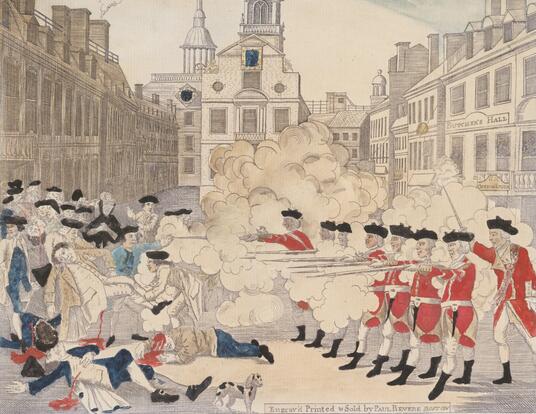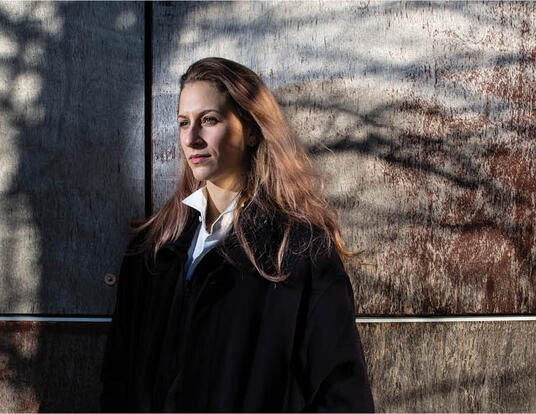John Kamm: 2022 Centennial Medal Citation

The massacre at Tiananmen Square and the political detentions that followed were a shocking turning point in the world’s understanding of modern China. For John Kamm, they were a call to action.
At the time, Kamm was president of Hong Kong’s American Chamber of Commerce and a regional vice president of a multinational chemical corporation. Raised in New Jersey, where he first learned basic Cantonese, Kamm earned his bachelor’s degree at Princeton and went on to complete his master’s in 1975 through Harvard’s Regional Studies–East Asia program. He considered pursuing a PhD but found extraordinary success and influence in the world of international business instead—which is how he found himself at a banquet honoring the American business community in Hong Kong in 1990, where he boldly suggested that the Chinese government free a particular political detainee as a show of good faith. Kamm’s request initially prompted outrage, but a few months later, the prisoner was released.
John Kamm’s persistence and high moral code have placed him on the right side of history.
—Professor William Kirby
Kamm shifted his full attention from business to human rights advocacy, researching detainees in China and asking government officials about their status, often leading to their release or better treatment. Kamm became founder and chief executive of the Dui Hua Foundation, a nonprofit organization dedicated to this work; he has made more than a hundred human rights advocacy trips to China and has sought justice for more than a thousand prisoners. The New York Times put it simply: “No other person or organization in the world, including the State Department, has helped more Chinese prisoners.” In 2004, Kamm became the first businessman to receive a MacArthur Fellowship; he also received awards for best global practices and human rights from President Bill Clinton and President George W. Bush.
“John Kamm as an individual has had a greater impact on seeking justice for political prisoners and those of conscience than anyone else that I know,” says Anthony Saich, director of the Ash Center for Democratic Governance and Innovation and Daewoo Professor of International Affairs at Harvard Kennedy School. Reflecting on Kamm’s success in securing the release of prisoners in China, Saich adds, “It is unlikely that anyone else could have received such a response. He has made a truly remarkable contribution to those individuals persecuted in China and in bringing their plight to public attention.”
The secret of Kamm’s success lies in his unique approach, according to Xiaofei Tian, professor of Chinese Literature and former chair of the Committee on Regional Studies–East Asia. “The name of his foundation, Dui Hua, means ‘dialogue,’” Tian explains. “To advocate effectively for the release of these prisoners, it’s not enough to simply point to international standards; it’s important to be able to talk to and listen to the other party. It’s a pragmatic approach and a very wise approach.” Tian also admires Kamm’s commitment to human rights diplomacy. “His understanding of China’s culture is important in his diplomacy,” Tian says. “If you understand people’s cultural values, the traditions they hold dear to their hearts, you can speak to them, and that’s the foundation of John Kamm’s work.”
Kamm’s expert knowledge of China’s laws—and his ability to point out when Chinese officials are not observing them—is similarly instrumental. William P. Alford, Jerome A. and Joan L. Cohen Professor and director of East Asian Legal Studies at Harvard Law School, has sought Kamm’s wisdom on difficult pro bono cases, has invited him to speak to his classes, and supports his use of Harvard’s libraries, including the Law School’s Chinese law collection, arguably the best outside Asia. “John’s modus operandi is singular,” Alford observes. “He bases the requests he presents on information secured from publicly available People’s Republic of China sources and PRC law, thereby removing the possible objection that he is simply bringing to bear an external standard. In doing this, he has always been humble and self-sacrificing. He has devoted countless, thousands of hours not only to the research and negotiation themselves but also to patiently comforting the families of those imprisoned.”
According to William Kirby, T.M. Chang Professor of China Studies in the Faculty of Arts and Sciences, Spangler Family Professor of Business Administration at Harvard Business School, and chairman of the Harvard China Fund, “John Kamm’s persistence and high moral code have placed him on the right side of history. As both a businessman and human rights activist, he understands how to engage, and, where necessary, confront a changing China. I applaud the Dui Hua Foundation for creating meaningful and respectful dialogue with China on human rights issues and the criminal justice system. Harvard could not be more proud of this alumnus, and there is no doubt that John will continue to make a difference in the most important bilateral relationship of the 21st century.”
John Kamm, for your tireless, personal commitment to opening mutually respectful dialogues with Chinese officials about at-risk prisoners, an innovative approach that has spared and improved the lives of so many, we are proud to award you the 2022 Centennial Medal.
Get the Latest Updates
Join Our Newsletter
Subscribe to Colloquy Podcast
Simplecast





